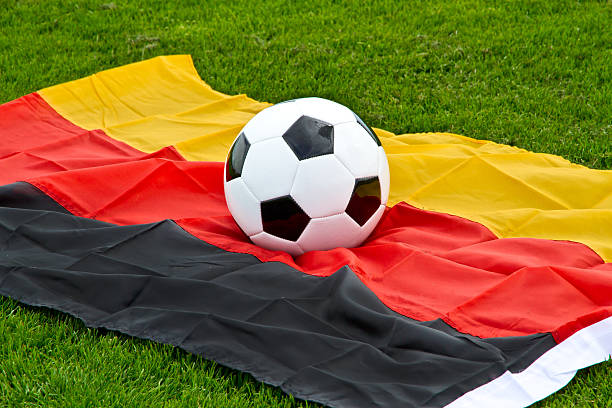German football has undergone a fascinating evolution over the years, spanning from humble beginnings in the 1950s to becoming one of the leading nations in world football. This journey not only reflects the sporting development but also the cultural and societal dynamics of Germany. Let’s take a look at how German football has evolved over time.
The 1950s and 1960s were characterized by rebuilding efforts after the ruins of World War II. During this time, the foundations for modern German football were laid. The German national team made its debut at the World Cup in 1954 and surprised the world by winning the title. This triumph, known as the “Miracle of Bern,” created a national passion for the sport and laid the groundwork for the successes that would follow.

In the 1970s, German football experienced a golden age, led by legends like Franz Beckenbauer, Gerd Müller, and Sepp Maier. The German national team won the European Championship in 1972 and the World Cup in 1974. This era was characterized by technical brilliance and tactical sophistication, making Germany a dominant force in international football.
The 1980s were a time of consolidation and innovation. German football continued its success despite facing new challenges. The Bundesliga became the leading football league in Europe, producing talents like Lothar Matthäus and Karl-Heinz Rummenigge. Tactical developments and increasing professionalism defined this period, paving the way for further successes in the years to come.

The 1990s were marked by reunification, which also influenced German football. Winning the 1990 World Cup, just months after German reunification, symbolized national unity and strength. Players like Jürgen Klinsmann and Matthias Sammer led Germany to further triumphs, both domestically and internationally.
The new millennium brought new challenges and opportunities for German football. A new generation of players, including Michael Ballack, Oliver Kahn, and Philipp Lahm, took the torch and led Germany into a new era of success. The third-place finish at the 2006 World Cup on home soil was a highlight of this time and marked the beginning of sustained dominance on the international stage.
The recent years have seen a continuous evolution and modernization of German football. The introduction of talented young players like Mesut Özil, Thomas Müller, and Manuel Neuer, as well as the promotion of an offensive and attractive playing style, have made Germany one of the most feared teams worldwide. Winning the 2014 World Cup in Brazil, with a convincing 1-0 victory against Argentina in the final, was the pinnacle of this development.

Today, German football continues to stand for excellence and innovation. The Bundesliga is one of the most exciting leagues in the world, and the German national team remains a formidable competitor at every international event. Through continuous investments in youth development and a strong club structure, Germany is well-positioned to continue playing a leading role in world football in the future.
The evolution of German football is a fascinating journey that reflects the history and values of Germany. From humble beginnings to triumphs on the international stage, German football has undergone a remarkable transformation and will undoubtedly continue to have an inspiring and successful future.












Discussion about this post